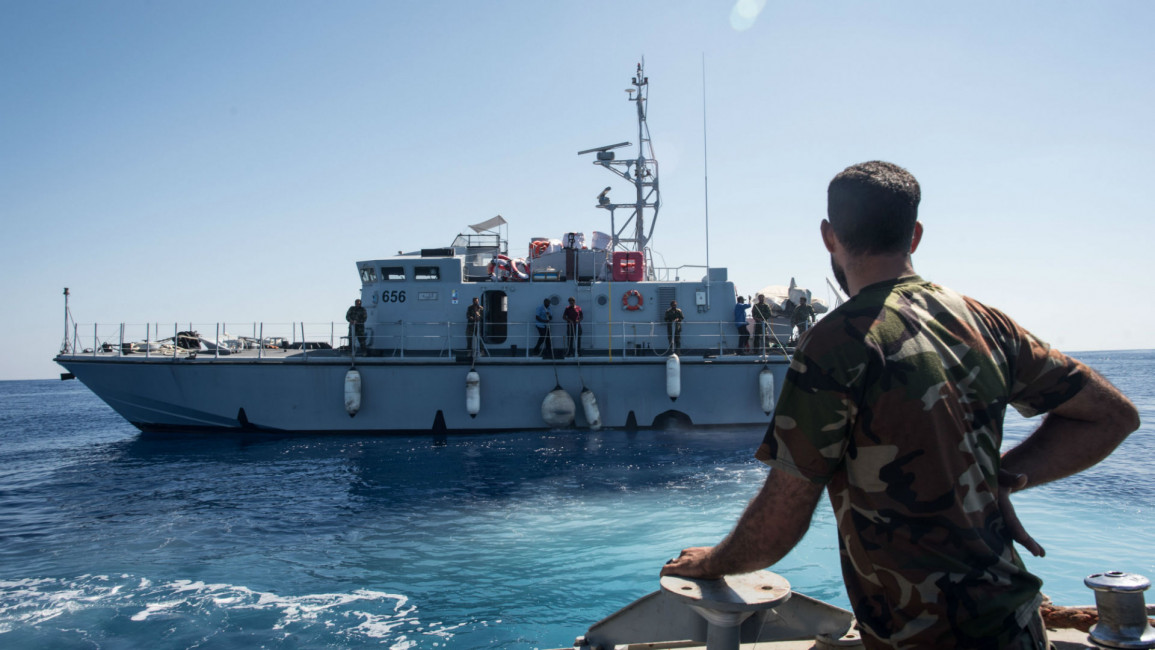Libya defends forced removal of migrants barricaded on ship
Libyan authorities have defended the use of violence by police as they forced dozens of migrants off a ship, who refused to disembark.
The migrants had barricaded themselves in a container ship in the port city of Misrata for the past 10 days after being picked up at sea fearing for their safety and welfare if they were detained in Libya.
The migrants were attempting to cross the Mediterranean Sea to Europe earlier this month when they were rescued at sea by a cargo ship, Nivin, that was already bound for Misrata.
"One of the reasons for the raid, of course, is that we received an appeal from the ship's captain, the agency and the ship's owner that they had carried out the rescue operation and then became hostages," Navy Colonel Tawfiq al-Skair, Commander of the central sector of the Libyan navy and coast guard said.
"Their movement was limited, there were two (crew members) who jumped into the sea fearing for themselves after they were threatened with slaughter. All this because they promised to take them to Italy or Malta, but brought them back to Libya instead," he added.
The migrants reportedly refused to disembark in the port city of Misrata, saying Libya was too dangerous for them.
Libya has become a key trafficking point for migrants from Africa hoping to reach Europe. Human rights groups have described terrible conditions for migrants in Libya, with cases of slavery reported in the country.
A navy spokesman said security forces boarded the ship late on Tuesday after negotiations with the migrants failed to convince them to leave the Nivin voluntarily.
According to him, the operation turned violent after the migrants tried to stop their removal from the vessel.
A number of migrants needed hospital treatment, before being taken to a detention centre in Misrata.
The spokesman added Libya had been forced to take action to protect the ship's crew, who had appealed for help.
Libya was plunged into chaos after the 2011 uprising that toppled Muammar Gaddafi, and has since emerged as a major transit point for migrants fleeing war and poverty in Africa and seeking a better life in Europe.
Rights groups say migrants face exploitation and abuse in Libya at the hands of smugglers and local militias.
In recent years, European countries have provided training and funds to Libyan authorities to reduce the hazardous sea crossings, which have claimed thousands of lives.
But critics say those efforts leave the migrants trapped in Libya.


![President Pezeshkian has denounced Israel's attacks on Lebanon [Getty]](/sites/default/files/styles/image_684x385/public/2173482924.jpeg?h=a5f2f23a&itok=q3evVtko)



 Follow the Middle East's top stories in English at The New Arab on Google News
Follow the Middle East's top stories in English at The New Arab on Google News


